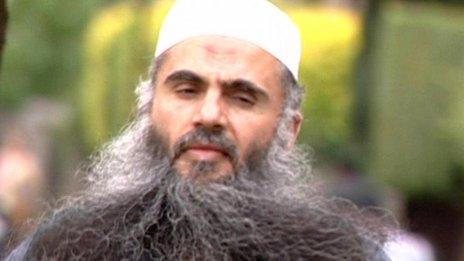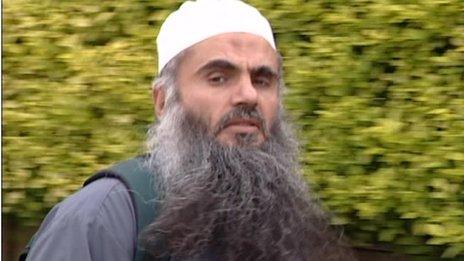UK presses for European human rights convention changes
- Published
- comments

There is much caution towards the idea of curbing the powers of the Strasbourg judges
The government is calling for the European Convention on Human Rights to be substantially rewritten so national courts have a greater say.
Ministers have long promised to use the six-month presidency of the Council of Europe for reform in Strasbourg.
They have now circulated a detailed position paper with plans for the human rights court.
The document is the basis for negotiations with other countries ahead of a summit in Brighton in April.
Fewer cases
The draft that I have seen says the European court should not be able to examine cases that are "identical in substance to a claim that has been considered by a national court".
The exception would be when "a national court has manifestly made an error in its interpretation of the convention", or if the case "raises a serious question about the way the convention is interpreted or applied".
This would mean far fewer cases would ever reach Strasbourg.
The government also calls for people to have much less time to apply to the European Court - just two, three or four months, not six months as now, after a national court makes its final judgement.
Massive backlog
The position paper - known as the draft Brighton Declaration - says the European Convention should be rewritten so that it includes two key principles.
One of "subsidiarity", namely that decisions should be taken at the lowest levels possible, and the "margin of appreciation", namely that national governments should have greater leeway in applying the judgements of the court.
The government calls for a new procedure so the Strasbourg court can offer advisory opinions that would not be binding on national courts.
And it demands that more judges are appointed to deal with the court's massive backlog of cases.
The document also sets out the government's call for a new commission to rethink the whole future of the court and the convention.
The government is under substantial pressure to act to curb the powers of the Strasbourg court.
Many MPs - and many voters - oppose its recent decisions to prevent the deportation of the radical cleric Abu Qatada and allow prisoners the vote.
Setting example
But the government's proposed reforms are controversial - and they'll need the unanimous agreement of 46 other countries in Brighton if they are to come into force.
It is likely that some countries will seek to water down the impact of these reforms.
Liberty's Shami Chakrabarti and Conservative MP Dominic Raab debate the move
Liberty chief executive Shami Chakrabarti told BBC Radio 4's Today programme the government's proposals suggested that Britain, and other countries with their own human rights acts, should no longer be "effectively subject to the court of human rights".
She said Britain should be setting an example on human rights to younger democracies in Europe, like Russia.
But the Conservative MP Dominic Raab told the programme: "We should do the right thing for British democracy and we should do the right thing in terms of upping the pressure on [Russian PM] Mr Putin... there's no point in kidding ourselves that Putin is going to care two hoots about whether we deport Abu Qatada, or prisoner voting."
The Strasbourg judges themselves openly oppose many of the UK government's proposals, such as incorporating subsidiarity and the margin of appreciation, onto the face of the convention.
There is a broad consensus within the Council of Europe that the court needs to change, above all that its backlog is too large and it needs to focus more on cases dealing with fundamental rights.
But there is much caution towards the idea of curbing the powers of the Strasbourg judges.
There is also the question of the Liberal Democrats. Many are very reluctant to question the role of the Strasbourg court and some may find these proposals hard to stomach.
- Published28 February 2012
- Published13 February 2012

- Published5 February 2015
- Published25 January 2012
- Published17 January 2012
